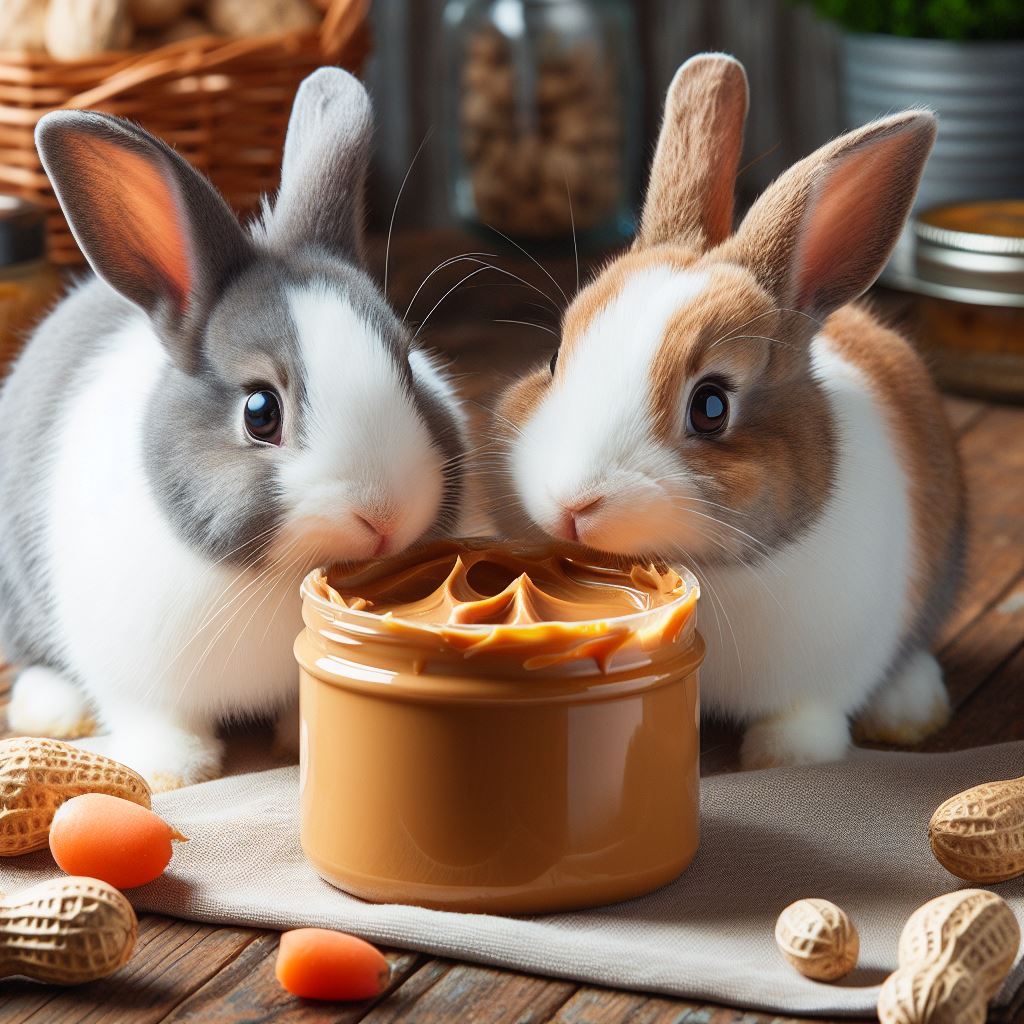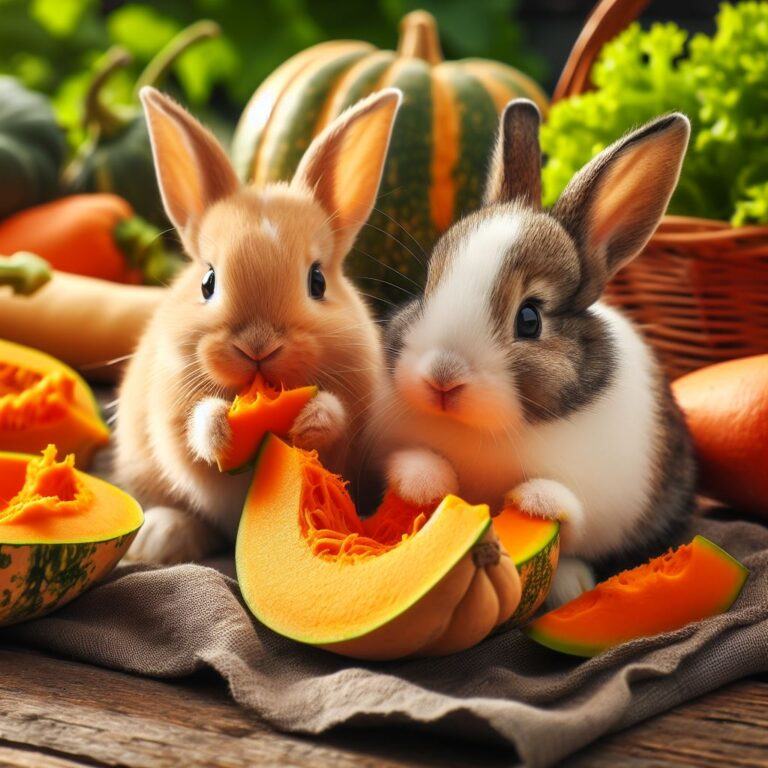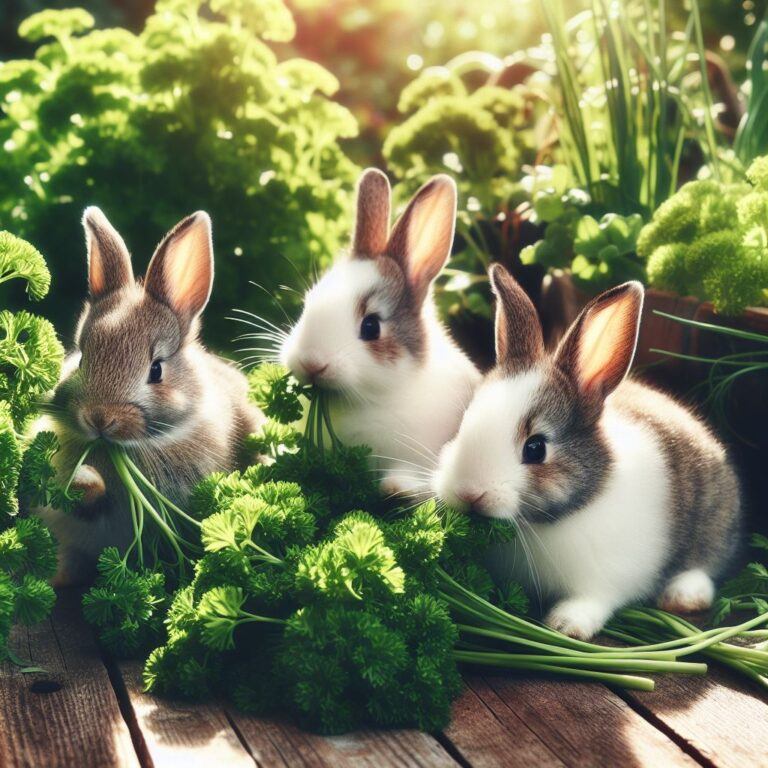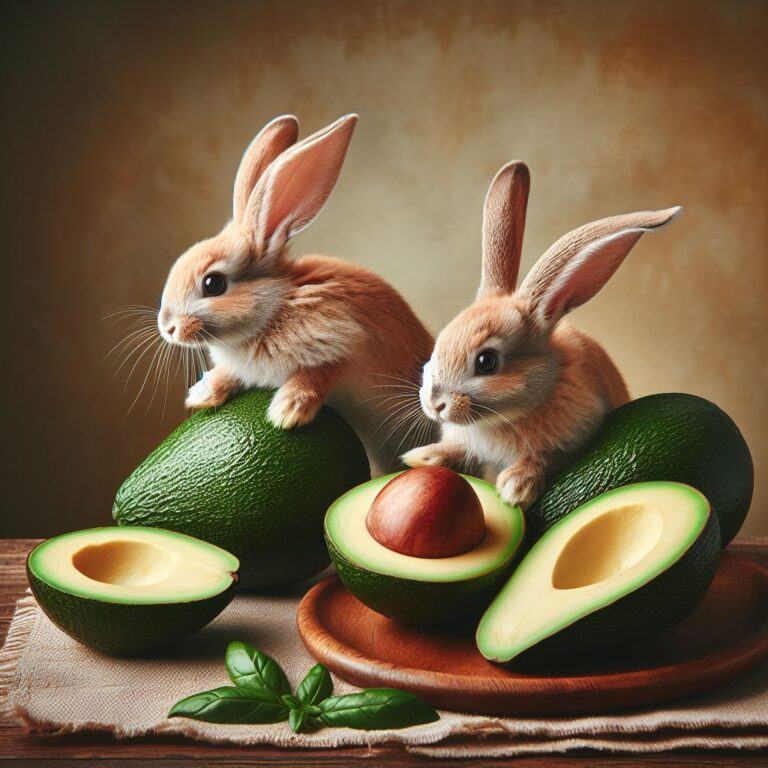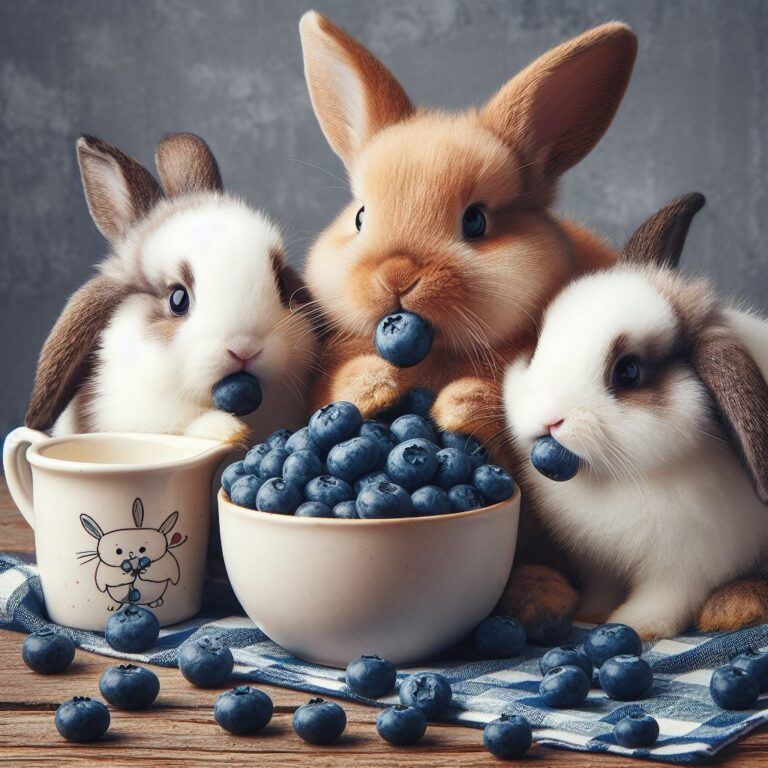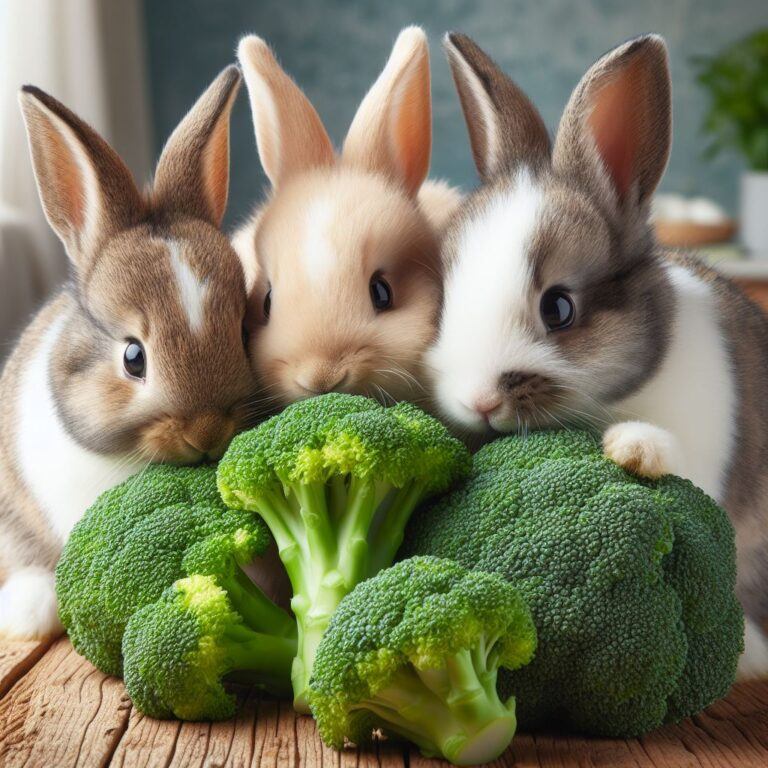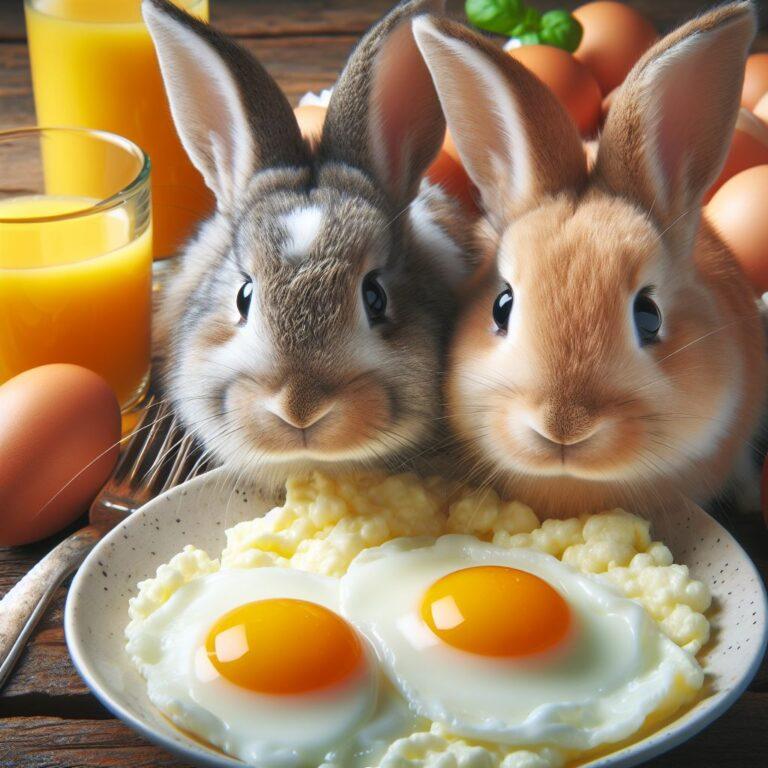Can Rabbits Safely Eat Peanut Butter
NO, rabbits should not eat peanut butter. It is rich in fats, which are difficult for rabbits to metabolize efficiently and the added sugars and preservatives found in many store-bought peanut butter have no place in a rabbit’s diet, which naturally contains little to no sugar.
Not every human food is safe for rabbits, and understanding this helps to prevent unnecessary health complications.
There’s a misconception that if food is safe for humans, it’s safe for pets, but that’s not the case.
Rabbits have specific nutritional needs, and peanut butter is not a treat that fits in with their diet.
After understanding why peanut butter is a poor choice for rabbits, it’s essential to focus on what kinds of foods can contribute positively to their health and well-being.
Understanding the Dietary Needs of Rabbits
Rabbits have specific dietary requirements that align closely with their natural habits in the wild. Their digestive systems are designed to process a high-fiber, low-fat diet, primarily consisting of grass and quality hay.
This kind of diet helps maintain their intestinal health and keeps their digestive tract functioning properly.
Without the correct balance of nutrients, rabbits can easily develop digestive and other health problems.
The importance of fiber in a rabbit’s diet cannot be overstressed. A high-fiber diet ensures proper digestion and prevents issues like gastrointestinal stasis, a dangerous condition that can be fatal for rabbits.
Foods that are high in fats, such as peanut butter, are not only difficult for rabbits to digest but could also lead to obesity and other health concerns if consumed regularly.
Improper feeding can lead to a range of health issues in rabbits, including dental problems, obesity, and digestive disturbances.
One might think that a small amount of a ‘human treat’ would be harmless, but for a rabbit, it can cause significant distress.
Paying close attention to what they eat is crucial for their longevity and well-being.
Being a responsible rabbit owner, as I believe I am, it’s essential to understand and provide a diet that mimics what they would eat out there in the wild.
By limiting treats and focusing on quality hay, fresh greens such as romaine lettuce, kale, or cabbage, and a small amount of pellets will ensure that your pet rabbit stays healthy and content.
It’s crucial to research before introducing any new food into their diet to avoid any adverse effects.
Nutritious and Safe Alternatives to Peanut Butter for Rabbits
A rabbit’s optimal diet should always be fresh, simple, and resemble what they’d find in their natural habitat. Instead of high-fat, sugary treats like peanut butter, aim for the safe and nutritious alternatives I will share.
Introduce new foods to your rabbit gradually. Any sudden change can upset their digestive system. When you do offer a new treat, start with a small piece to see how they react.
If they tolerate it well over 24 to 48 hours, you can slowly give them a little more.
Hay should be the cornerstone of your rabbit’s diet, full of fiber aiding their digestive process. Fresh vegetables like leafy greens add variety and extra nutrients.
When it comes to treats, think moderate. A small piece of fruit like the odd slice of strawberry, banana or watermelon shouldn’t do any harm.
Also, some tasty herb leaves such as parsley, coriander, or basil can bring joy to mealtimes without health risks, but I will always recommend consulting with your vet before adding anything new to your bunny’s diet.
Please remember that water isn’t just crucial, it’s essential for our rabbit’s health. Always have fresh water available, and change it daily to ensure it’s clean.
Remember, the care you put into your rabbit’s diet directly impacts their happiness and longevity. Stick to these safe alternatives, and your rabbit won’t just survive, they’ll thrive.

